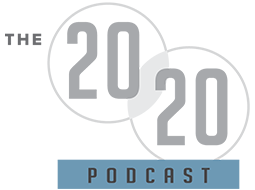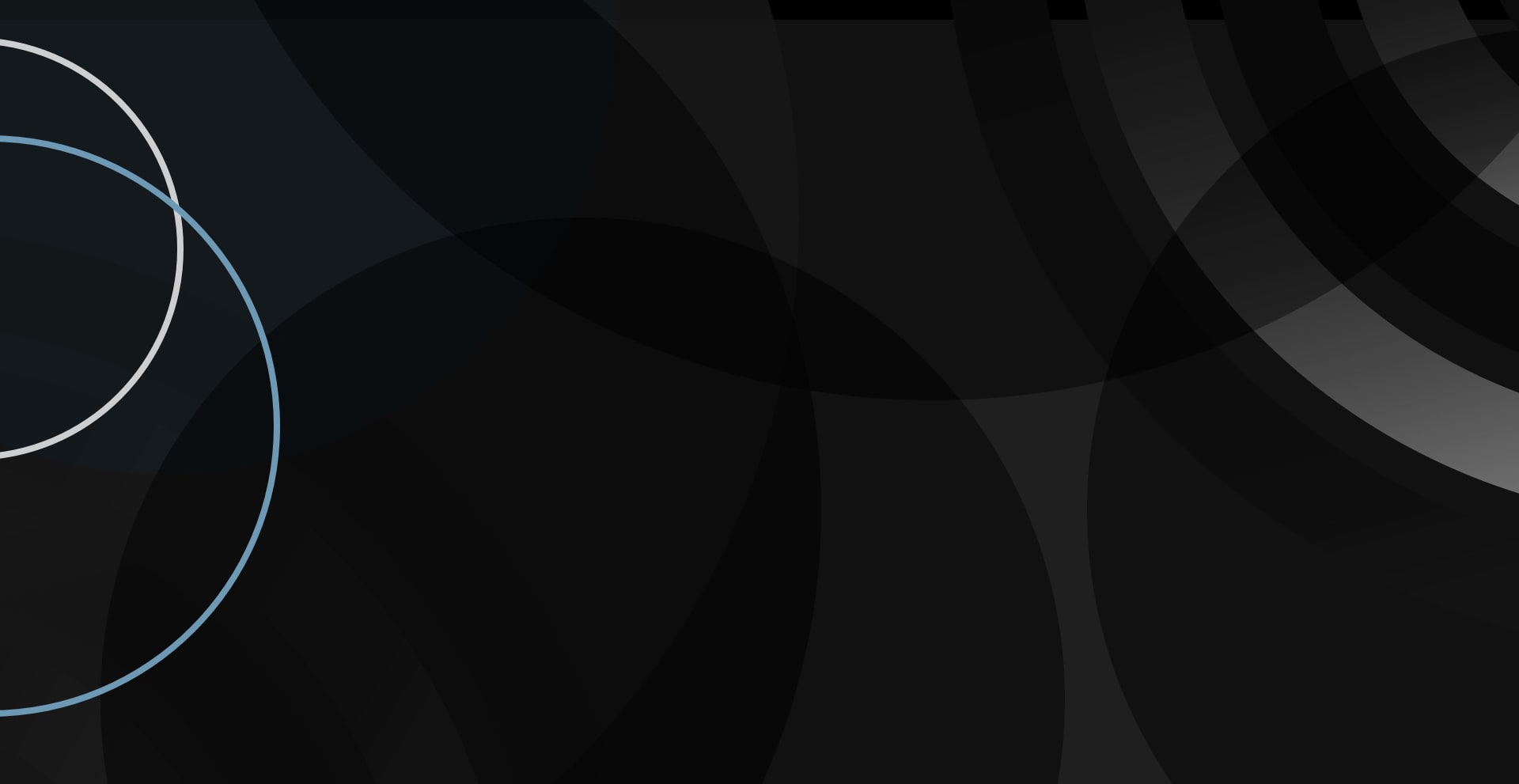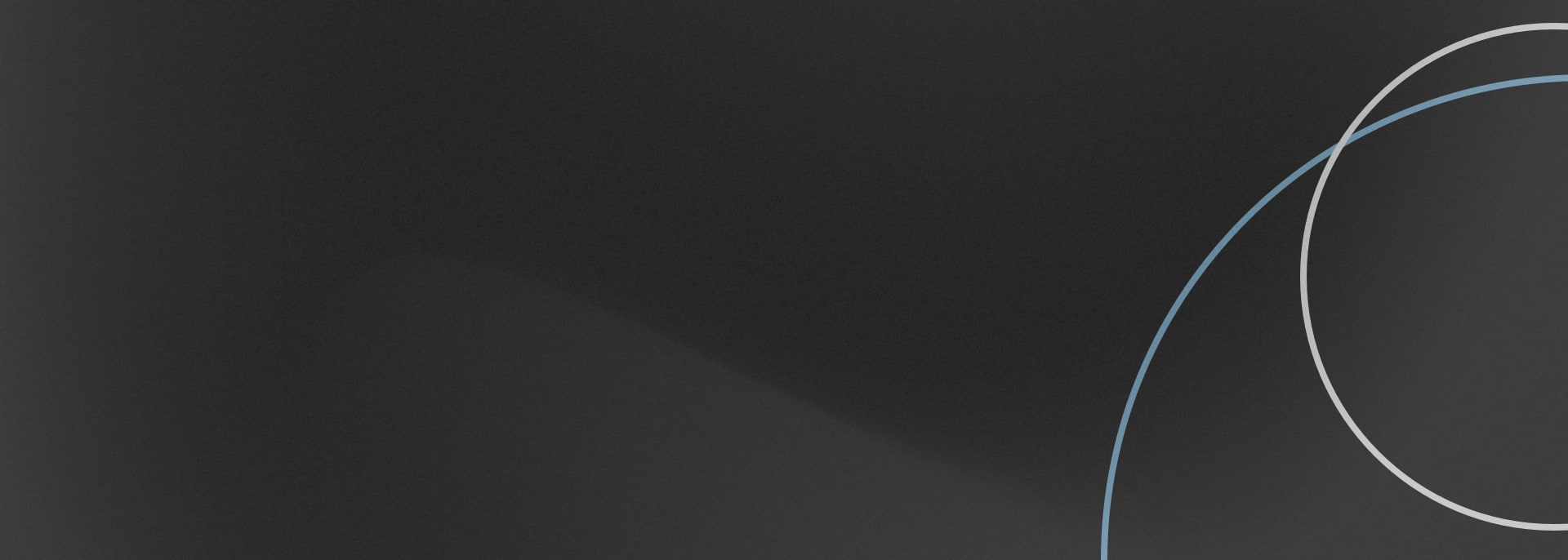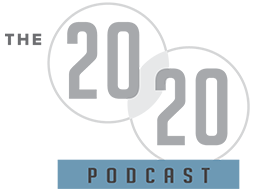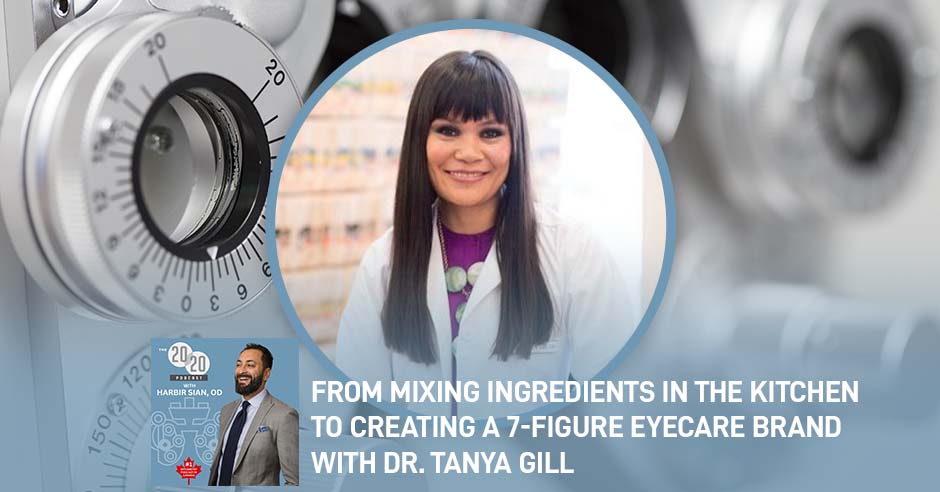
Like any brand, everything started from an idea, planted like a seed in one’s mind, and sprouted and grew into something fruitful. We Love Eyes began with one optometrist’s search to help one patient. When Dr. Tanya Gill couldn’t find a makeup-removing product that would satisfy her patient, she decided to make one herself. Although she didn’t know it at the time, at that moment, she had created the first product in what would become an eyecare brand, with revenues quickly topping seven figures. Buckle up for a fun and quirky conversation with Dr. Gill as she takes us through her journey from being fired as an associate optometrist to buying her practice, starting We Love Eyes, and eventually selling her practice. It’s quite the ride!
Connect with Dr. Gill and find We Love Eyes:
LinkedIn – https://www.linkedin.com/in/dr-tanya-gill-od-a381b28b
Website – https://www.weloveeyes.com
—
Watch the episode here
Listen to the podcast here
From Mixing Ingredients In The Kitchen To Creating A 7-FIGURE Eyecare Brand – Dr. Tanya Gill, We Love Eyes
As always, I’m truly grateful for all the support over the many years that I’ve been doing the show. I can’t thank you enough for reading, sharing, liking and commenting, and all those things. If you could continue to do the same things, please, that has helped the show grow so we can reach more of our friends and colleagues to share the message most importantly, such as my amazing guest, Dr. Tanya Gill.
Dr. Tanya Gill is the Founder of the brand We Love Eyes, which we’re going to learn a lot about in this episode. She is an optometrist based in the Bay Area, and went to UC Berkeley for undergrad and her optometry school. She is a former private practice owner and clinical director at Oakland Vision Center, which was an award-winning optometry clinic. She’s been on the speaking circuit. She’s done all the writing articles and everywhere that you’d want to be. Now she’s working from home and driving this great brand and making it such a great brand that everybody in our industry and profession is recognizing and knowing. Thank you so much, Tanya, for being here on the show.
Thanks for having me. It’s a pleasure.
My pleasure. We saw each other in Toronto at the Dry Eye Summit, which was fun. I got to see there and your team and the energy. I love the energy you and your team. It’s great.
I miss you already.
That’s kind. I miss you too. I can’t believe it’s taken us this long to get this. We’re going to definitely try to do something in person next time I see you. I didn’t know you were going to be there at that time. It was nice to get to chat with you and I think we connected so there’s going to be more. This is the intro. This is my first time having you on the show. I want anybody who’s reading and doesn’t know you that well to get to learn about you a little bit. Why don’t we do this, if you were to meet somebody at a conference like we did, what would you say about yourself, a pitch about Tanya Gill?
Tanya Gill is very simple and easy. I like three things. 1) I like laughing and having a fun time, hence the energy at the Dry Eye Summit. I said I’ll go to the show. I was talking about an eye drop shop. I’ll go to the show as long as I have fun. 2) I truly believe a healthy lifestyle is how I want to live. It’s also the message I want to grow and spread. 3) I believe in authenticity. If it’s not real, I’m not interested. I’m a Scorpio. I can only tell the truth.
I don’t know much about Zodiac signs, but I’ll trust you on that one. The authenticity part is legit. Another friend and colleague of mine, based out there in Toronto, Dr Kiran Ramesh. I don’t know if know her at all. She is an amazing person with great energy. I asked her, “Where do you get this amazing energy? Every time I’m around you I feel better.” Her thing was authenticity. I didn’t quite get the connection at the time, but I realized that as closer your authentic self you can be, the less energy you’re wasting on trying to be something else. You have this energy to put out there in the world and connect with people.
The person that you see right now is the person that you met in real life, the person that you see on social media, is the person who is a little nicer than she is to her husband.
That’s a slight difference from mine. I have to be a little nicer to my wife than I am on here. She did create three little humans for us so I have to make sure I’m being nicer. I definitely got the two of those, the fun and the authenticity from our short meeting in Toronto. Tell me about the wellness thing, number two on your list.
Health and wellness. I went to Berkeley. I’ve always lived a healthy lifestyle. I’ve always been somewhat of an athlete. I am always been attracted to things like that. I took Nutrition when I was at Berkeley, but it started when I met my husband in 2012. He kept getting these chapped lips and I thought to myself, “I’m an amazing kisser. This is crazy.” It wasn’t the case. It turned out he was allergic to Sodium Lauryl Sulfate or SLS, which is a surfactant in our washing detergent.
I thought to myself, “If he’s allergic to SLS and getting chapped lips, maybe my dry eye patients, that’s why I can’t fix them, they might be allergic or have sensitivity to SLS. I got to pay attention.” That’s when my We Love Eyes started spinning about the health component as it relates to dry eye and anterior sick disease.
I guess we’re going to go down a little bit of a rabbit hole here. SLS is in certain products that we would use around our face and eyes.
Shockingly, Sodium Lauryl Sulfate is a surfactant. It is in a lot of cleansers. It’s even in things like mouthwash, toothpaste and shampoos. It’s in a lot of products that we use every day. I didn’t know until I looked at the labels.
Tell me a little bit more about your journey post-optometry school, a few highlights of what was good about your career and what do you remember about your career pre-We Love Eyes?
I love my career. From the second I graduated optometry school, I knew I wanted to be in private practice. I pursued that. I worked in different settings. I worked in corporate. I worked for two ophthalmologists. I tried my own thing, and it failed. That was my first private practice. It was a private practice that took no insurance. That was a failed model. I kept trying until I found what I wanted. Long story short, believe it or not, somebody fired me from being an associate at their practice.
That was probably the most devastating thing I’d ever been through. He let me go so he could have that doctor scheduled for his friend’s son who was graduating from optometry school. that was the reason he gave me at least. I was devastated, but lesson learned. I saw an opening at Oakland Vision Center, applied and got the job. I own that practice for eighteen months after that. It was weird.
I had a guest, Dr. Cameron Mccrodan, who mentioned the Farmer’s Fable or something like that. It’s referred to as often something bad perceiving a negative event can lead to a positive event. A lot of the events that happen in our lives when you look back, have a totally different connotation to them. The fact that you got to let go of that one position led you to this clinic that you eventually became the owner of.
That’s a perfect segue because I wanted to talk about that because you took that to an amazing height. I remember seeing over the years, past years on social media, all the stuff you were doing there and the aesthetic of the clinic, everything was great. Tell me a little bit about that because you said to me offline, that was like one of those practices that seemed like it was on its way out, but you revived it and then turned it into something else.
It was a business that needed some TLC, some love, full-time clinic director to revamp the business and inspire the staff. I saw that opportunity after working there for a year and I said, “This business could be something. It’s in the center of downtown Oakland.” When the Warriors won those basketball games, that parade was right on Broadway, which is where our front doors open out into Broadway. It’s a fantastic location. Those years were a lot of fun. I mean the highlight of owning an optometry practice, there was the Warriors. That’s all we cared about.
The highlight of anybody who lived or worked in that space, no doubt.
It’s so much fun. I changed it and I won an award. I had my face on the cover of a magazine in 2014. Did I send a copy pass of aggressively to practice that fired me? I did do that. It was a nice journey. the whole Instagram social media thing was picking up. Not many eye doctors had entered the space. Being in downtown Oakland, being around a lot of tech, I said, “I’m going to try this. It’s free. I have no money. Let me try it.” That ended up becoming incredibly successful.
What would you say are a couple of things, if you can dwindle it down to a few things that you did to turn that office around? What do you think made it successful? Was there your culture in the office, was it certain products you’re selling? Was it connecting with the community? Was it something else?
It was truly my vision. I had this vision board. I started at the very bottom of this ladder. If you look up where I wanted to be and if we could do a super simplify, I wanted to be on the top of this ladder somehow. Everything that I decided was one step at a time. I never made big changes. I knew my end goal was focused on that end goal. I took steps to get there.
“1) Let’s clean the office. 2) Let’s remove the wallpaper. 3) Let’s put in hardwood floors. 4) Let’s change the dress code. Let me talk to the staff.” How do they want the culture of this practice to be? I made a very stepwise approach. My office still looked like it was in the eighties for the first 3 or 4 years. I owned it. I didn’t change that right away. It takes time. When you have no money, it takes even more time. I didn’t want to be in debt either. I think smart about it in hindsight.
Starting a brand takes time. When you have no money, it takes even more time.
I talked to on the show and otherwise different people about building a culture or building a successful business. Probably, the number one thing that comes up is having a strong clearly defined vision one way or another, relaying that to everybody on the team, knowing what direction we’re all heading in. That’s one of the most important things that comes up. It’s great to know it again. I guess that verifies that again.
For the rest of us, for example, in my practice, I’m always trying to find a way to elevate and to try to make it better. That’s one thing where I’ve fallen a bit short is sharing that vision like, “I have a vision, but I don’t think I’ve been sharing it enough with my staff, office manager and everyone.” We all know we’re pulling in the same direction all the time. That’s good to know.
If I could add a little thing on that ladder, I was in the very beginning, a terrible manager. I took a bunch of classes, but I wanted to become a better manager. About what you’re saying, all you need to do is have an office meeting and ask, “I want to grow this business. I want to empower you guys. How do I do that?” Your staff is going to give you the answer. They are going to tell you. You have to listen. That’s what I learned. I became an exceptional manager by the time I told my business. Listening to your staff, not just listening but asking them and responding is vital to success and running a positive culture in your business.
How often would you say you had those meetings on average?
We had a meeting every single week. I’d have a different member present at the meeting every single week. The meeting was truly about, “Here’s problem A. Don’t bring me a problem unless you have the solution.” My staff knows this about me. Sometimes they would present the solution before they present the problem. It was magical. It is so much fun once a week, lots of communication and then even during the day, to have little powwows one-on-one is very important.

Checking in with everyone, weekly meetings and giving the staff the responsibility of leading the meeting in taking turns leading and presenting. That’s another way to keep them feeling involved in the business rather than working there.
I want them to feel, “I work with you. I just facilitate your dreams,” is my motto.
How long have you owned Oakland Vision Center?
I was there for 14 or 15 years. I owned it most of that time.
When did you start We Love Eyes?
I started We Love Eyes by accident. Probably 2014 is when it started. By the time 2016 came around, I had a physical product that had gone through all the regulatory things I needed and that was launched to market in 2016.
I feel like all the best businesses are started by accident. They’re meant to be something different. I love the beginning stories, the starting point of these brands. I feel like a lot of times we celebrate and are fascinated by how significant a brand has become. We forget once upon a time it was just an idea. How did it go from an idea to you starting a company? What was the beginning? What did it look like?
The beginning was seriously a glass of sangria on the second date with my husband. I was very into getting married. I’m like, “I’m going to get married, so help me.” He was asking me like, “What do you want to get ?” He meant to ask me a question, “What do you want to order tonight for dinner?” I went in this huge tiring, “I’m going to do this. I’m going to do that. By the way, I want to invent something.” I put that in there and he said, “What do you want to invent?”
I said, “I have no idea, but I know I’m going to invent something one day, then probably saying that out loud, a few weeks later she walked into my office and it was this patient complaining, “These are the worst contacts you’ve ever prescribed me. I need different contacts.” I looked at her and said to her, “When was the last time you removed your eye makeup?” “I don’t do that.” I said, “Why don’t you do that?” She says, “I need to remove my eye makeup with these ingredients or lack thereof.”
These are words that are still on my label to this day. I had pretty much no idea what they were in 2012, “Vegan and cruelty-free.” Remember my practice by Berkeley, “Paraben free, it’s got to be all of these things. You can’t have preservatives, this and that.” I said, “Hold on, let me get my pen. Let me write this down.” I went to Whole Foods that night thinking I could pull it from the shelf, buy it for her and prove her wrong. She was right. Instead of doing that, I went to a health food store, bought a bunch of ingredients and I made it for her in my kitchen.
Rather than using a makeup removal product that had those ingredients, she chose to leave her makeup on her face. Is that the lesser of two evils? I’m not sure. Do you remember some of the ingredients? What did you make? What was the first product that you made at home?
It’s this one.
That was your first product?
I made this. It contains teach rate oil and the teach oil and it is the trade secret, the concentration of it. I did test every concentration of teaching fruit oil possible on my then fiancé. We’re married now.
He didn’t burn his skin, lose his lashes or anything.
It’s cruelty-free. Poor guy. He was a great smart.
Cruelty is subjective in that situation I suppose. That’s amazing. Okay, you bought a bunch of stuff, put it together, created it, and did you give it to your patient? Did she use it?
After a few weeks of trial and error, I said, “I like this formula,” I made sure I used it on myself and tested it on my husband. I thought, “I think she’s going to like this.” I put it in a bottle that looked like this with no label, nothing. It said seriously for the patient’s name with a piece of masking tape. I gave it to her. I was like, “Here you go. Use this.” She’s like, “What is this?” I said, “You were right. There’s nothing that exists in this world according to your ultra-demanding list. Go try this.” She says, “This is phenomenal. This is what I need.” She’s still a patient. I still talk to her once in a while. She still uses it.
Did she ask me for royalties or not?
She didn’t ask me for anything, thank goodness.
You did give her something that she’s never had before, which was this product that she could use.
I gave it to her for free for a year. I couldn’t charge her for it because I was making it in my kitchen. It got to the point where I was making it for many patients. One of them said, “Can you bottle this up and sell this?” I thought, “Maybe.”
It turns out you can. Was it that one product when you got the initial government approval, FD approval or whatever you had to get. Was it that first cleanser in the beginning?
I had this and then quickly thereafter I increased the tea treat oil concentration to make a cleansing oil for blepharitis. That was the next thing. I also happened to formulate in my kitchen a foaming cleanser. I had three products. At that point, I’m like, “I need a brand name. What am I going to call this?” I pulled my entire office patients, “What should I call this?” Our tagline, if you remember from my Instagram days was #WeLoveEyes. That was on the front of my practice. I took that.
I was thinking about your feeling that you wanted to invent something. Did you grow up in the Bay Area? You’ve always lived there. Do you think growing up there had something to do with that? Being near Silicon Valley and all that stuff, like do you think that had something to do with it or not really?
My mom said I was born an entrepreneur. She says I was like that when I was a kid. Do you remember Cabbage Patch Kid? They were super popular. You could never buy one. My dad tried to buy me one. I wanted a redhead, freckled ginger Cabbage Patch Kid. That was my thing. I had to have one. One day we are at Lucky’s Grocery Store. They were giving one away as a little art contest, make a piece of art and then go ahead and win this Cabbage Patch Kid. While my mom was grocery shopping, what was I doing? I think I was 10 or 12 years old. I was studying all the entries. I’m like, “Take me to the art store.” I went to the art store. I won that Cabbage Patch Kid.
You have the entrepreneurial gene, but you also have the will and desire to put something together that will help you succeed in winning that contest or building a brand. In the early days of now let’s say you got those three products, what does it look like? You’re trying to get this out there. How are you connecting with people? Who are you selling it to? How are you getting it to them?
For the first year, I only sold it to patients in my office. It was the way to test the product. I thought it was something I was going to sell in the office to my patients who had eye problems. The more I did, the more they were like, “Why can’t I just buy this online?” It’s like, “I don’t know. Can you?” It started growing from there. I never wanted to have a We Love Eyes company. I thought it was a hobby to solve a problem that needed some help.
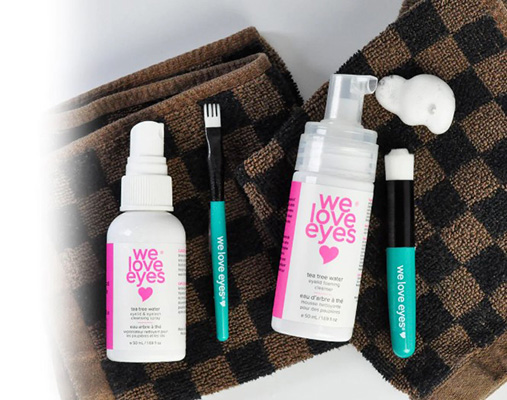
The design of the packaging, the logo, all this kind. I’m fascinated by all of this. What was that like to draw these things up yourself? Did you hire somebody to design stuff for you? What did that look like?
I have no money. I came up with a tagline. I learned Photoshop so I could make my own label. I chose this heart because I couldn’t afford to buy a logo or create one. It is one of those fonts that you can use from Microsoft Word. It had a heart that meant love, which I love. It looked like a teardrop. I’m like, “I think this is me.” It looks like a drop, but it’s a heart. It was free. The reason why I have a Kraft box is because when I was shopping around for boxes, the Kraft was the cheapest. I could only afford one color so I bought black. It was very bare bones.
Now you look at it, you’ve created a brand. That’s the brand. You see the box. It doesn’t have to be necessarily like you come out with some fancy box that stands out from everything else. If you can build a brand itself, the box becomes its own thing. Branding is so important. When you started doing online, how about the shipping side of it? Were you shipping things out? How was that working?
I was good at shipping things. When we finally went to shipping things out, I was good at shipping things incorrectly out to my poor customers and patients. It’s not my thing. It’s terrible. I mean, mistake after mistake, but I sent it where. In 2016 I had a patient come in with blepharitis. I helped his eye problem. I put him on the foaming cleanser and this product. I was into double cleanse pioneered for eyecare in 2014. I gave him these two. I was like, “Go do your homework for two weeks. Come back.”
He comes back. It turns out that he runs a digital advertising company he said whatever this is, this is voodoo and witchcraft. I want to help you take this to market,” because he never knew that something like that existed. He identified it and I said, “Okay.” In 2016, we launched on Shopify. We moved things to a very small fulfillment center in Atlanta, Georgia because that was one of my non-talents, shipping.
All the products went from the center and they shipped everything out from there.
They did it for free for six months. That was the deal.
That’s nice. You got a chance to test it out.
I had no money. I was like, “I don’t need a fulfillment center. It’s cheaper for me to ship them out and make mistakes than hire this fulfillment center.” They said, “Six months for free because I wasn’t sending any products out.” I was like, “That’s fine.” I popped the champagne that first week we sold $100 worth of product.
I remember you telling me that in person. You are excited to sell $100s worth of products. Now, I’m sure you’re selling significantly more than that. What I want to know is between $100 and now, was there a point where you saw this is taking off. Do you remember something like that happening?
I was busy at Oakland Vision Center. I was probably putting 60 hours between admin and seeing patients at Oakland Vision Center. We Love Eyes was happening slowly then 1 day, probably 3 years into it, we hit 6 figures within 12 months. I was like, “This is something.” I remember it being something but it was still inconsequential to my practice when three years into it we hit seven figures. That’s when I was thinking, “This is potentially no longer a hobby but this might become my primary gig.”
At that time, that’s pretty quick growth. Where’s the manufacturing happening, the product and how are they keeping up with this?
I remember when I placed my first purchase order, this is a lab, they’re all in the United States. All of the cleansers are made in the United States. None of it’s made overseas. They’re all made here. That’s one thing I was into, the whole made in USA thing. My boxes are made here. Labels are made here. That was one of the things where I was willing to pay a little bit more to have everything made in the US, but it turns out accidentally it was the right thing because now when I have a purchase order that’s running through, “Where are the labels? Where are the boxes?” They’re coming from like two ZIP codes away. It’s very convenient. My first purchase order I placed for 5,000 units, which gave me a heart attack. That’s a lot of units.
I bet I also imagine that everything made in the USA came in handy when everybody else is dealing with logistical nightmares during COVID and everybody was getting delayed with the supply chain issues where I imagine there was still some here, but at least you’re not dealing with stuff coming from wherever else and there are containers sitting on ships out in the ocean waiting to get docked. Definitely, I imagine was beneficial as well.
I still had supply chain issues but all in all nothing compared to what it could have been. COVID was definitely a struggle. I thought we were going to go out of business in 2020 after 2019. It was hard.
How did you get through that? Was there anything that you did specifically to get through that or was it a matter of weathering the storm and waiting it out?
I had no growth in 2019 or 2021 of those years. Maybe negative 2% growth. I thought that was good because negative growth sometimes still is growth. I learned a lot of lessons from that. I’m crying every other day. I thought it was the reason why. It helped me recover.
Negative growth still is growth, but it is not good.
Working for your emotions is a good thing. It’s a healthy thing.
It’s like being raised by a tiger mom helped me get through that. It was hard. Do you have a tiger mom?
I didn’t know what a tiger mom was until recently. I understand what you mean by now.
My mom is very much a tiger mom who doesn’t think she’s a tiger mom. She’s still upset I didn’t graduate from Harvard Optometry School.
What you could do is to make her proud is to start a Harvard Optometry School, give her that and then send her your face on a magazine. I’m adding some new sections to the show here. I want to stay with it with the times, add new, fresh things because there are certain things that are timeless and questions that I ask people in the audience they love and they tell me about it. I want to add some new things that’ll keep it fresh and keep readers on their toes.
There are 4 or 5 Rapid fires that I want to go through here. We’ll try to keep it short, like a couple of words to one sentence roughly. I have to give a shout out to Bart Foster, Founder of BusinessOutside. I’m going to have them on at some point soon. Some of these questions are inspired by him. I want to make sure I put that out there. If anybody’s heard Bart say these questions and you’re like, “Habir asked the same questions.” I got some of them from Bart. I want to make sure he gets the credit where it’s to. Let’s go through this. Rapid-fire, what gives you energy? What gets you hyped up?
Being creative.
What drains your energy? Nothing.
No, I have my inside voice and then my outside voice.
I’d love to hear the inside voice, but I understand you might have to filter it. That’s fine.
I like being around people who want to learn new things, so curious people. If I’m around people that are opposite of that I lose my patience very quickly inside voice.
What keeps you up at night?
I love sleep, but probably menopause.
Is there something you do that gets you into a flow state? Something you do that makes you feel like time disappears?
Before this episode, Habir asked me what I was doing and I cross-country skate. I live in Tahoe full-time. Cross-country skating is something I saw. It’s the most strenuous, difficult cardiovascular-tasking sport people do. I was watching the PyeongChang Olympics on TV. I was like, “I’m going to do the biathlon one day to try it, but I’m going to learn how to skate in the process.”
Apparently, a very tiny percentage of the population of the world even knows or does cross-country skate. That’s why I want to do it. It’s the most difficult thing I’ve ever done. When I’m skiing out in this valley and there’s this moment where life is perfect, like I could be there forever. There’s no time. There’s nothing. It’s just me, the snow and my terrible technique. That’s where I’m at.
That sounds beautiful and amazing. I’ve done a cross-country a couple of times. It is very hard. Biathlon is underrated. People watch that and they’re like, “He’s skiing.” You’re so gassed and breathing so heavy. I can only imagine how hard it’s to aim at whatever distance they’re shooting at after they’re exhausted.
The thing I love about it is because it’s so hard. It reminds me very much of being an entrepreneur.
Often as an entrepreneur, you’re doing two different things, at least at the same time.
Getting punched in the face is always one of them.
That reminds me of a Mike Tyson quote. He said, “Everybody’s got a plan until they get punched in the face.” Also, something I think is true as of entrepreneurship. Everybody’s got a plan for this business that’s going to do so well until all of a sudden it doesn’t and then you got to find other ways to navigate. There’s a section that I’m doing, which I’m like forcing this down people’s throats here because I don’t know how well received it’s going to be, but I call it You’re Welcome. Have you seen the movie Moana?
No.
It’s okay. I have young kids. It’s a Disney movie, but there’s a character in there who’s like this demi-god who’s responsible for creating a lot of the things on earth. He is egotistical. He’s an egomaniac. He has a song in there he sings saying, “You’re welcome for everything I’ve created for you.”
I want to use that because the guests that I have on the show are such amazing people like yourself who are doing things that most of us are not, or have done things that most of us haven’t. I would love for you to share what’s the most profound piece of advice or information you think you could share with me and the readers you think has shaped your life. When you share that with me, we are all going to say thank you to you then you’ll say, “You’re welcome.” Dr. Tanya Gill, what is one profound piece of advice or information you can share with us?
If something’s really hard, you should probably try to do it.
Thank you.
You are welcome.
I’m into stoic philosophy and there’s the book called Obstacle Is The Way that’s taken from Marcus Aurelius who’s one of the biggest stoic philosophers in ancient history. That’s what he used to say. The obstacle is the way. What the impediment to action is often the direction of the action, whereas many of us would run the other way, but the hard thing is probably the right thing to do. I wanted to add that in there because I think it’s true in life. Tanya, before we get into the two staple questions I ask every guest at the end of every episode, how can people connect with you or find you and We Love Eyes?
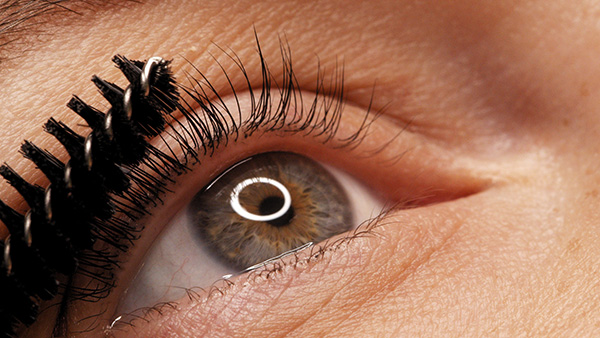
In Canada, we are at Eyedrop Shop. Contact them. Anthony is there to answer questions, but they are our distributor in all of Canada. They are not just fabulous of what they do, but they’re fabulous people. He and Claudine.
If our regular readers are reading, they’re very familiar with Claudine because she’s been on a few times in the past episodes. She’s one of my favorite people. She’s amazing. Shout out to Claudine. Anthony is awesome. He is a super cool guy. In general, if somebody wanted to reach out to you, where could they find you?
You can go to WeLoveEyes.com. That’s my website then there’s a little thing on the bottom that says Contact Us. That’s pretty much if you say, “Get Connect me to Dr. Gill,” you’ll get me.
I want to be part of Dr. Gill’s Energy Field.
You could send me a direct message on TikTok. I manage the @WeLoveEyes TikTok account. I love it because I didn’t even know how to do a TikTok before. We just started. It’s challenging. It’s fun. It’s super creative. Anything that’s creative, I’m all for. I manage that account because I am truly inspired to make a fun space for eye problems there.
The last two questions that I ask every guest. 1) If we could hop in a time machine and go back to a point in your life where you are struggling, you’re welcome to share the moment if you’d like to share what you were struggling with. More importantly, what advice would you give to yourself at that time?
This is such an awesome question and it’s such a ridiculous answer. I had a hard time, not related to being an entrepreneur, life in general, but life equals entrepreneur. It’s the same thing. This might sound silly, just breathe. You can crawl in a hole. Hug yourself, pry yourself, that’s fine. Seriously, just breathe. You’re welcome
Life equates to entrepreneurship. You can crawl in a hole, hug yourself, and pry yourself. That’s fine. But seriously. Just breathe.
There are multiple points in this episode where you could say, “You’re welcome. Just breathe. Just get through it.” Final question. Everything you’ve accomplished to this point, how much of it is due to luck and how much is due to hard work?
0% luck. 100% hard work. I don’t believe in luck. You’re welcome. If there was a such thing as luck, I would’ve won that Cabbage Patch Kid. I had to work for it.
Clearly, you have worked extremely hard, and it’s beautiful to see how much it’s paying off and hope it does continue to. I look forward to the next time I get to see you in person and possibly have you back on the show down the road to talk about some more fun stuff that you’ve been doing, maybe learn about more of your cross-country, maybe you start doing biathlon and what’s happening with all that. Thank you so much, Tanya. It’s been great to chat. I appreciate all the insight.
That was so much fun. Thank you for having me.
It’s my pleasure. Thank you to everybody who has been reading. This is the number one optometry show. Thanks for all the support. We’ll see you in the next episode.
Important Links
About Dr. Tanya Gill
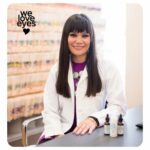 In 2014, I started We Love Eyes to help my patients with their eye problems. When it comes to the delicate nature of eyes, ingredients are everything. I wanted to provide my patients with healthier and more thoughtful options: vegan, cruelty free, made without gluten, sodium lauryl sulfate, parabens, or fake fragrances / colors. Thanks to my organic chemistry courses at UC Berkeley, and my obsessive desire to create unique, effective products – We Love Eyes has grown from an idea to a recognized brand name within the eye care community.
In 2014, I started We Love Eyes to help my patients with their eye problems. When it comes to the delicate nature of eyes, ingredients are everything. I wanted to provide my patients with healthier and more thoughtful options: vegan, cruelty free, made without gluten, sodium lauryl sulfate, parabens, or fake fragrances / colors. Thanks to my organic chemistry courses at UC Berkeley, and my obsessive desire to create unique, effective products – We Love Eyes has grown from an idea to a recognized brand name within the eye care community.
